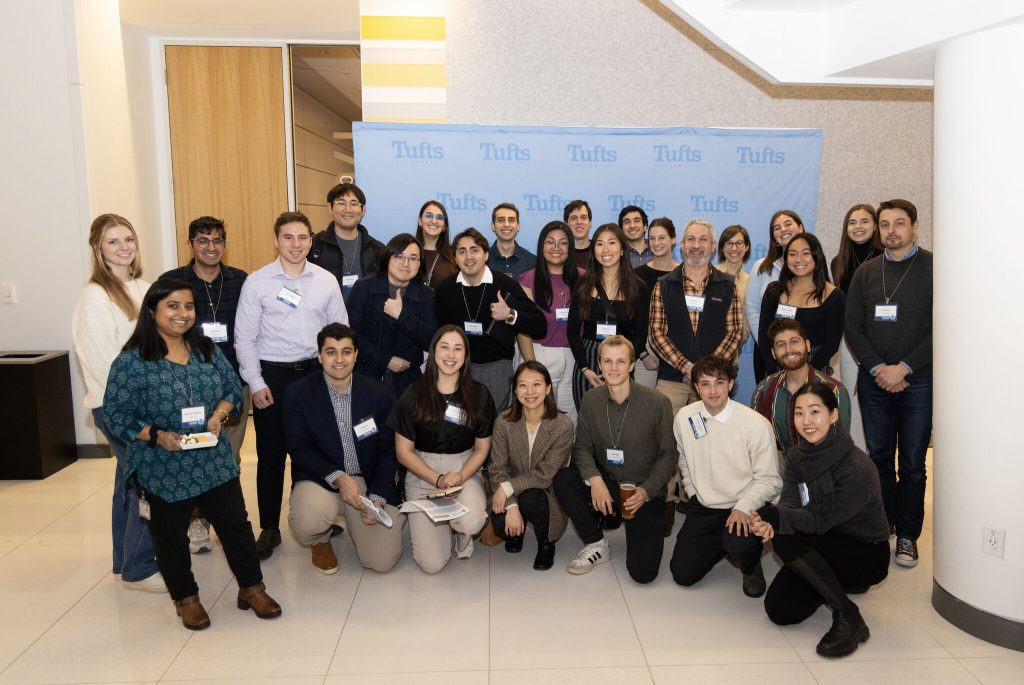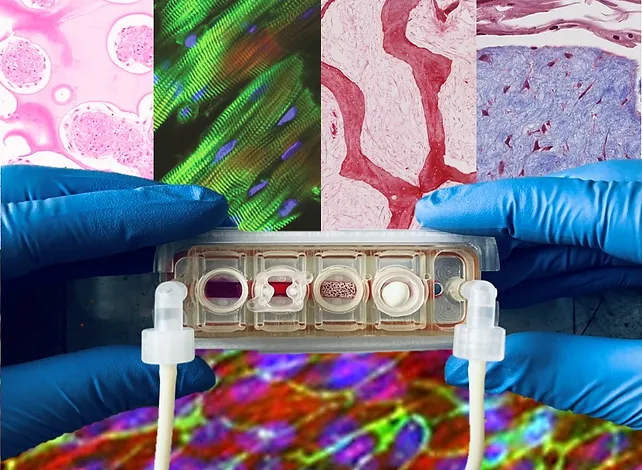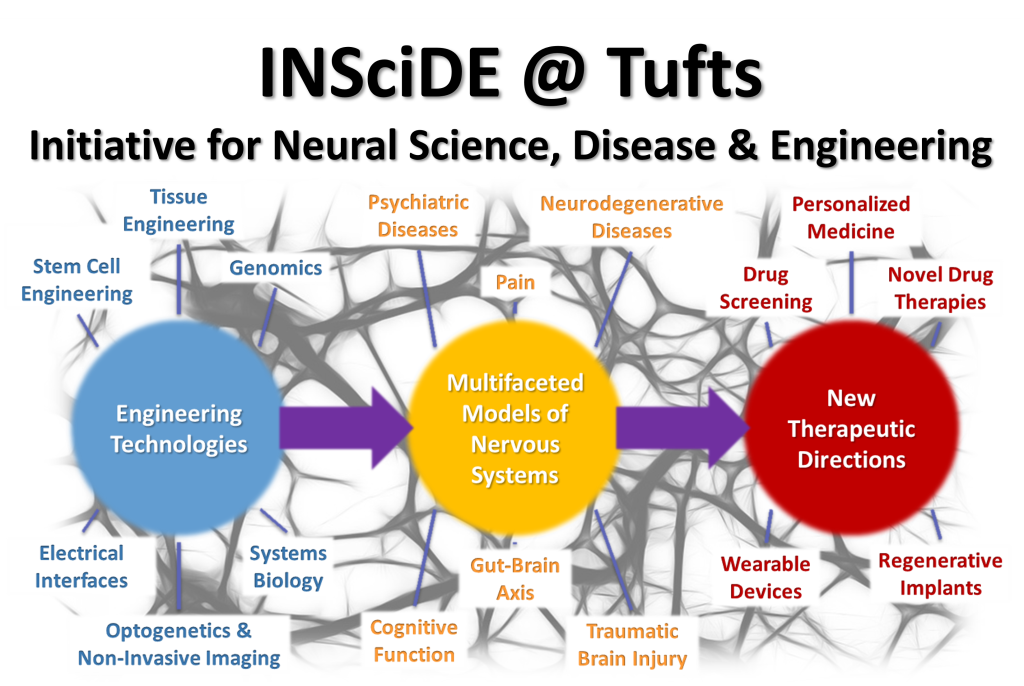
Centers and Facilities
Tufts University Center for Cellular Agriculture (TUCCA)
Tufts University Center for Cellular Agriculture (TUCCA) is an interdisciplinary center of excellence advancing the scientific building blocks of cultivated meat, building a pipeline of talent, and fostering public trust in this novel technology. TUCCA was established in 2021 and made possible by decades of prior programs at Tufts (like Professor Kaplan’s Tissue Engineering Resource Center) that developed relevant expertise for this emerging field. With over 90 members across five schools and eleven departments, TUCCA is creating an engine of innovation at Tufts at the intersection of science, engineering, and food policy. In addition to a flagship academic program (which launched the world’s first undergraduate degree and graduate certificate in cellular agriculture), TUCCA organizes a pre-competitive industry consortium and is home to a USDA-funded National Institute for Cellular Agriculture.
Tissue Engineering Resource Center (TERC)
The P41 Tissue Engineering Resource Center was initiated in August of 2004 with funding provided by the NIH (supported through the NIBIB). The core themes in the Center continue to focus on functional tissue engineering achieved through the integration of the key elements in the field, via a systems approach; cells, scaffolds and bioreactors to control the environment. The Center is run at Tufts University in Medford, Massachusetts and is directed by Professor David Kaplan. The Center also includes a partner institution, Columbia University in New York City, where the Associate Director for TERC, Professor Gordana Vunjak-Novakovic, runs additional aspects of the Center. There are two main cores in TERC, a biomaterials core at Tufts University and a bioreactor core at Columbia University. Stem cells and related cell biology needs are integrated into these two core efforts to optimize functional tissue outcomes.
Initiative for Neural Science, Disease & Engineering (INSciDE @ Tufts)
The Initiative for Neural Science, Disease & Engineering (INSciDE@Tufts) is an interdisciplinary Neuro Center with the mission to accelerate the discovery of therapeutic solutions to brain disease through the integration of technological innovations in biomedical engineering with stem cell biology and regenerative medicine. Launched in the fall of 2017 from the new Science & Engineering Complex (SEC) on the campus of Tufts University, INSciDE offers a unique portfolio of bioengineered human 3D brain-like tissues to address fundamental questions about brain biology as well as mechanisms of neurodegenerative diseases, traumatic brain injury, psychiatric disorders, and cancer. The technology is scalable to screen for drugs, targets, and biomarkers and is shared with a network of national, regional, and university-wide collaborators that use these systems to recapitulate molecular, cellular, and network functions of the brain for mechanistic as well as translational studies.
Collaborating Facilities
The scientific environment in the Kaplan lab fosters synergy and collaboration among investigators, students and faculty. State-of-the-art laboratories are maintained including core facilities available through the Tissue Engineering Resource Center (TERC). Examples include the unique Biophysical Characterization Lab, Protein Processing Lab, Advanced Technology Lab, as well as the unique NIH-sponsored P41 Resource Center on Tissue Engineering, with our collaborative partner at Columbia University. These labs host our students and faculty, as well as visitors from other labs, provide training, and allow students and faculty at Tufts to interact actively with many researchers from around the world on a routine basis. The Silk Lab is a prime example of the above synergy, as it is a lab established collaboratively between the Omenetto and Kaplan labs to promote students to work together. The Advanced Technology Lab is a prime example of the above synergy, as it is a lab established without borders, to promote students and faculty to work together in labs, regardless of their programmatic affiliation, on joint research projects.
Laboratories
Non-exhaustive list of full-scale laboratories in the Science & Technology Center and laboratories located at 200 Boston Avenue:
Biomaterials/Protein Processing Lab – Systems to prepare polymers for use in biomaterial studies, from processing and purification equipment to materials formation from these solutions.
Biophysical Characterization Lab – A range of analytical tools to fully characterize material structure and morphology, including Fourier Transform Infrared Spectroscopy, Aviv Circular Dichroism, Atomic Force Microscopes, thermal mechanical systems, X-ray, Langmuir systems, Quartz Crystal Microbalance and related systems.
Cell and Tissue Culture Labs – Full facilities for growth and characterization of mammalian and insect cells, including stem cells and other cell sources. Equipment includes bioreactors, cell storage, histology, gas sterilization and related needs, range of incubators (oxygen control), egg systems, and microscopes.
Histology Lab – Reichert-Jung cryotome (Cryocut 1800), Leica EG1160 paraffin embedded, Shandon Hypercenter XP tissue processor, rotary microtome (Radical Instruments RMT-30).


